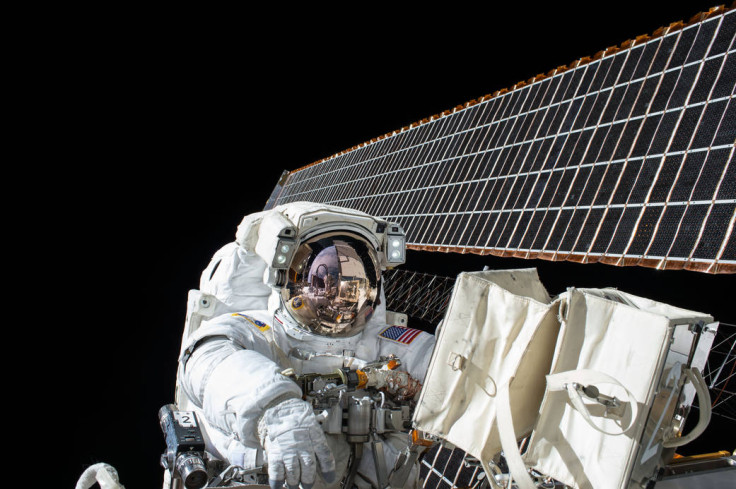Nasa mission to Mars astronauts will risk brain damage, blindness and memory loss

Man's mission to Mars may fail to launch because astronauts who spend long spells in space are experiencing pressure surges in their skulls that can permanently damage their vision, Nasa scientists say. Cognitive and memory problems can also occur.
Investigators say more than half of American astronauts have experienced changes in vision and the structure of the eyes, as well as indirect signs of increased brain pressure during long spaceflights, according to Melissa Gaskill, at International Space Station Program Office. Two astronauts have also come back to earth from the International Space Station (ISS) with serious eye problems caused by these pressure surges, according to researchers working for the European Space agency (ESA) and Nasa.
"We cannot send people to Mars until we know the cognitive impacts or there could be a disaster," Robert Marchbanks, an audiologist who works with Nasa, the ESA and the Russian space agency on a programme called Fluid Shifts, told The Sunday Times.
"Space agencies are worried about this," he added. "Loss of memory, cognitive skills and vision is the last thing they want on a hazardous mission."
Writing on Nasa's website Melissa Gaskill said: "The human body is approximately 60% fluids. During spaceflight, these fluids shift to the upper body and move across blood vessel and cell membranes differently than they normally do on Earth."
This can lead to "changes in vision and the structure of the eyes and indirect signs of increased pressure in the brain", she added. So scientists will begin to look "at the relationship between the fluid shifts and visual impairment and intracranial pressure syndrome, or VIIP", she said.
As well as running the London Marathon in space, Tim Peake, the British astronaut who travels to the ISS next week, will work on the programme.
"It's important to know what is happening because we may have to tailor preventive measures to each individual," said Dr Michael B Stenger of Wyle Science Technology and Engineering Group, one of the principal investigators.
"We also may find that an exercise that is good for bone or muscle is bad for elevated intracranial pressure," he added. "Exercise is great for preserving work capacity and the musculoskeletal system, but may be a contributor to increased pressure in the head."
Improved understanding of how blood pressure in the brain affects eye shape and vision also could benefit people on Earth, according another principal investigator Dr Alan R Hargens University of California San Diego.
Tests on non-invasive techniques for measuring changes in pressure in the brain "would be a great advantage for testing patients on Earth", he said.
© Copyright IBTimes 2025. All rights reserved.





















